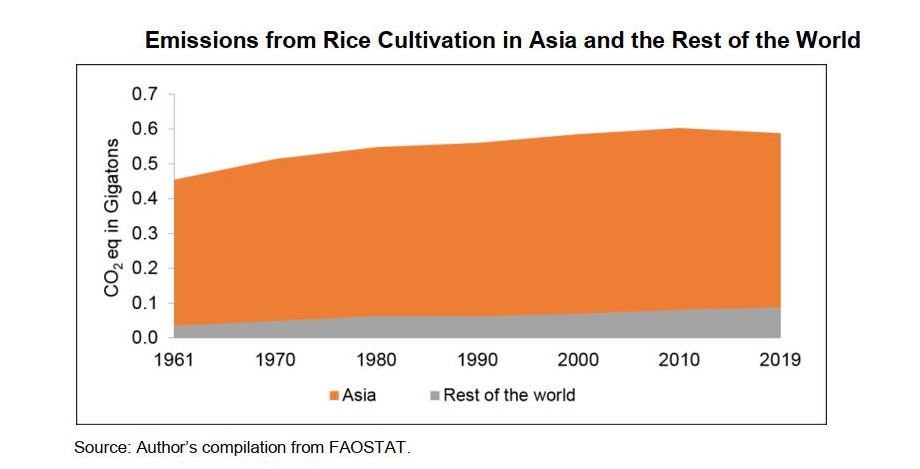According to UN data from 2018, agriculture is responsible for approximately 17% of the world’s greenhouse gas emissions on the other hand, the Asian Development Bank states that the use of synthetic fertilizers in rice cultivation in the Asia-Pacific region contributes to the highest emissions.

In India, the number of farmers has decreased due to the high costs and risks associated with farming. Some farmers are considering natural farming, but they are unsure if it will be successful on a large scale. They are concerned that it may lead to lower production and earnings because it avoids synthetic fertilizers and pesticides, and involves using organic manure, growing multiple crops, and not tilling the land.
However, according to officials, natural farming, when executed properly, can result in equal or higher crop yields compared to chemical-based farming. Those who have made the switch said their per-acre yield of rice dropped in the initial years to 18 bags of 75 kg from more than 45 bags with chemical farming – but harvests then picked up gradually as the soil health recovered.
According to the statement, the decrease in yields was balanced out by a 25% increase in prices for organic produce, as well as savings resulting from the elimination of chemical fertilizers and pesticides.
Though, many larger farmers consider the manual tasks of weeding and mixing manure to be time-consuming. The majority of farmers who have embraced this environmentally friendly approach own less than five acres of land.
The use of fertilisers in India has significantly increased over the years, with a ten-fold rise from 1970 to 2016. In Andhra Pradesh, the usage has reached 100 kg per acre.

Natural farming differs from the previously mentioned methods as in this we use organic materials such as cow dung, urine, chickpea flour, and jaggery to maintain soil fertility. Additionally, seeds are scattered and incorporated into the soil following the harvest.
There are very few natural farms currently, and convincing farmers to switch to this method would be a slow process, especially considering the additional challenge of adapting to a warmer climate. Farmers view climate change as an act of god, while the government and NGO’s promote natural farming for its benefits to livelihood and health, with climate resilience being an added advantage.
Reference- Thomson Reuters Foundation Article, BBC, Down To Earth, Scroll, National Geographic







